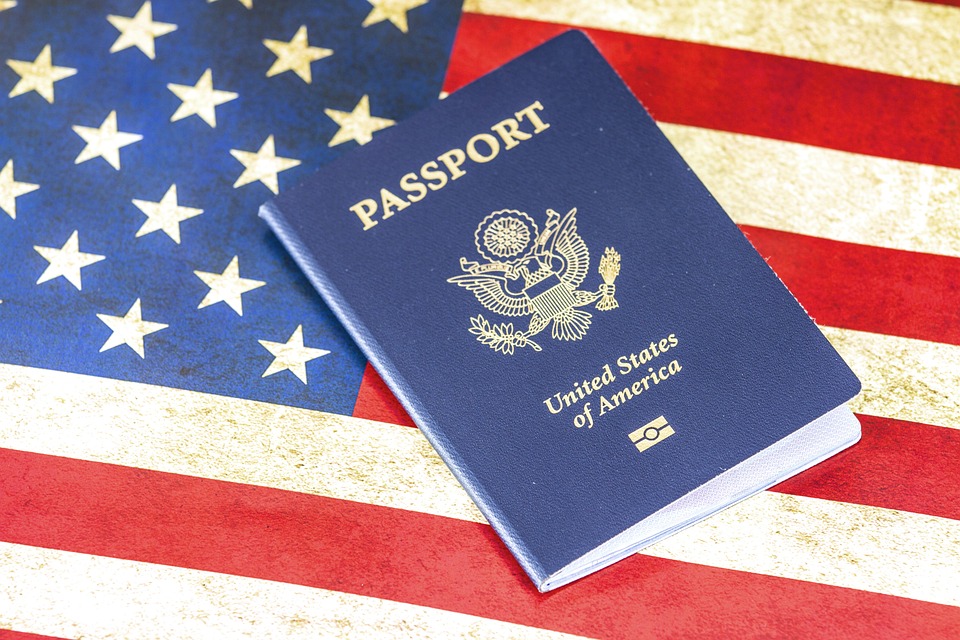Preparing for the U.S. Citizenship Test: How to Increase Your Chances of Acquiring Citizenship and What to Expect

Familiarizing Yourself with the Requirements
Overview of the Basic U.S. Citizenship Requirements
Before starting preparation for the U.S. citizenship test, it is crucial to thoroughly review the main requirements. Generally, to be eligible for citizenship, you must:
- Be at least 18 years old.
- Reside in the U.S. legally, holding permanent resident status (green card) for five years (or three years if married to a U.S. citizen).
- Have been physically present in the U.S. for at least half of the required residency period.
- Have no serious criminal convictions or legal issues.
- Possess basic knowledge of the English language, U.S. history, and government.
- Take an oath of allegiance to the U.S.
Rules and Criteria for Passing the Test
The U.S. citizenship test consists of two parts: an English language test and a civics test. For the English section, you will need to demonstrate reading, writing, and speaking skills, while the civics portion will require you to answer questions about U.S. government and history.
You must pass both tests to obtain citizenship. Typically, to pass the civics test, you need to correctly answer at least 6 out of 10 questions, and you must demonstrate adequate English proficiency in the language section.
It’s important to remember that if you do not pass the test on your first attempt, you have the opportunity to retake it within 60-90 days.
Test Sections and Study Materials
Overview of the Main Sections of the Citizenship Test
The U.S. citizenship test consists of two main sections: the English language test and the civics test (focused on U.S. history and government).
In the English section, candidates must demonstrate basic reading, writing, and speaking skills. You may be asked to read and write simple sentences in English and engage in a short conversation with the examiner.
The civics test consists of 10 questions drawn from a pool of 100 questions, covering various aspects of American history, government, and public life. You must correctly answer 6 out of 10 questions to pass this section of the test.
Recommendations for Choosing Study Materials for Each Section
Preparing for the U.S. citizenship test requires a methodical and deliberate approach. For the English language section, it’s helpful to use various English-learning resources, including textbooks, apps, online courses, and tutoring sessions.
As for preparing for the civics test, the official U.S. Citizenship and Immigration Services (USCIS) website offers free preparation materials, including a full list of questions and answers for study.
Sources of Information and Study Resources
There are many resources available to help you prepare for the citizenship exam, including printed materials, websites, and online platforms.
The official USCIS website provides a wealth of helpful resources, including study guides, sample tests, and preparation recommendations. Additionally, the site offers a complete list of questions and answers that could be asked during the civics test.
Specialized platforms and apps also exist to help you prepare, offering practice exercises, video lessons, and mock tests.
In addition to self-study, you can seek the help of a professional tutor or enroll in citizenship preparation courses, where you can receive personalized assistance and support.
Preparation for the Writing Section of the Test
Description of the Structure and Format of the Writing Section
The writing section of the U.S. citizenship test is an important component that assesses your understanding of the English language. This part of the exam evaluates your ability to write sentences in English, typically related to U.S. history and civics. The examiner usually asks you to write one or two sentences from a set of three provided.
Practical Tips for Writing Responses and Improving Writing Skills
Preparing for the writing portion of the test requires practice. Below are some tips:
- Practice Writing Regularly: It’s important to write sentences in English every day. This will help improve your grammar and spelling.
- Use USCIS-Provided Materials: The official USCIS website offers sample sentences for writing practice, which you can use to prepare.
- Review Your Work: After writing a sentence, always reread it to check for correct spelling and grammar.
Examples of Typical Questions and Tasks
Here are some examples of sentences you might be asked to write:
- “George Washington was the first president.”
- “The president lives in the White House.”
- “Americans vote for president in November.”
These sentences cover topics that frequently appear on the citizenship test, such as U.S. history, government, and public life. Regular practice writing similar sentences will help you prepare for the writing portion of the test.
Preparation for the Oral Test
Overview of the Oral Test Process
The oral portion of the U.S. citizenship test covers two main aspects: an English language test and a civics test on U.S. history and government. During the interview, a USCIS officer will engage in a conversation with you in English to assess your speaking and comprehension skills. In the second part of the oral test, you will be asked questions in English about U.S. history and government.
Tips for Improving English Speaking and Listening Skills
- Consistent Practice: Study English daily using various resources—books, audiobooks, podcasts, online resources, TV, and radio.
- Conversation Clubs and Language Exchanges: Participating in conversation clubs or language exchanges can provide excellent practice.
- Lessons with a Native Speaker: Working with a tutor who is a native speaker can help improve pronunciation and comprehension.
- Use of Language Learning Apps: Many apps offer interactive exercises and games to enhance listening and speaking skills.
Practical Exercises and Recommendations for Successfully Passing the Oral Exam
- Role-Playing: Conduct a citizenship interview role-play with a friend or teacher. This will help you feel more confident during the actual exam.
- Recording and Listening to Your Speech: This helps you identify and correct any pronunciation issues.
- Consistent Repetition of Answers to Questions: USCIS provides a list of potential questions for the oral test. Consistently repeating the answers to these questions will build your confidence.
- Stay Calm and Clear: It’s important to speak slowly and clearly during the interview, remain calm, and don’t be afraid to ask for the question to be repeated if something is unclear to you.
Test Exercises and Self-Assessment
Different Types of Test Exercises and How to Perform Them
When preparing for the U.S. citizenship test, it’s important to understand that you’ll encounter various types of exercises. The first is oral tasks, which include questions about U.S. history and government, as well as a test of your English language skills. The second involves written tasks, where you will demonstrate your level of English proficiency.
In addition to how you answer the questions, USCIS officers will pay attention to how you understand and respond, how you express your thoughts and ideas in English. Therefore, practicing full conversations in English is a key aspect of preparation.
The Importance of Self-Assessment and Independent Knowledge Review
Self-assessment plays an important role in preparing for the citizenship test. It’s crucial to honestly evaluate your knowledge and skills to identify which areas need more practice. Self-review helps ensure that you are confident in the material and prepared to pass the test.
There are many ways to review your knowledge: using online resources for practice tests, conducting mock exams with friends or family, recording and listening to your answers to check pronunciation and clarity.
Resources and Online Platforms for Practical Tests and Success Evaluation
There are various resources and platforms for practical tests and success evaluation:
- The official USCIS website offers sample test questions and practice materials.
- Language-learning platforms such as Duolingo, Rosetta Stone, or Babbel provide interactive exercises for practicing English.
- Mobile apps like “US Citizenship Test 2023” or “U.S. Citizenship Test Prep” offer practice tests and questions to study.
- YouTube videos can also be useful, especially for visual and auditory learners. Some channels provide detailed explanations and strategies for passing the test.
Track your progress, monitor your successes and weaknesses. This will help you focus on the areas that need improvement and achieve better results overall.
Tips for Physical and Emotional Preparation
Healthy Diet and Sleep Routine Before the Test
Your physical condition is crucial for successfully passing the U.S. citizenship test. Your brain needs protein, vitamins, and minerals to function at its best. A healthy diet will help maintain energy and focus during your preparation and on the test day. Incorporate foods like nuts, vegetables, fruits, and lean meats into your diet to support healthy blood sugar levels and brain activity.
In addition to healthy eating, maintaining a consistent sleep schedule is vital. Lack of sleep can negatively affect your ability to concentrate, retain information, and respond to questions. Aim to get 7-8 hours of quality sleep every night throughout your preparation, as well as the night before the exam.
Stress-Relief Techniques and Staying Calm During the Test
Test-related stress is natural, but it can be controlled. Mastering relaxation and stress-relief techniques can significantly boost your confidence and focus.
- Breathing Exercises: These help reduce nervous tension, improve brain oxygenation, and enhance concentration. Try deep breathing or the 4-7-8 technique (inhale for 4 counts, hold for 7 counts, exhale for 8 counts).
- Meditation and Yoga: These practices improve self-control and focus while reducing stress and anxiety.
- Positive Affirmations: Create a list of positive affirmations that you can repeat daily. They can boost your confidence and help manage exam anxiety.
- Physical Activity: Regular exercise helps lower stress levels and improves blood circulation, including blood flow to the brain.
Use these techniques during the test if you feel nervous or anxious. A few minutes of deep breathing or repeating positive affirmations can help you regain focus and continue the test with renewed energy and concentration.
Final Recommendations and Conclusion
Helpful Tips Before Test Day
As test day approaches, it is essential to stay organized and confident. Here are a few tips that may help:
- Plan your day: Check the time and location of the test and envision how you will get there. It’s a good idea to know where the building is and how much time it will take to reach the location.
- Review materials: Go over your notes and make sure you feel confident with the material. Don’t try to cram all the information overnight—it will only increase stress. It’s better to just recall the key points.
- Prepare your supplies: Gather all the necessary documents and items in advance to avoid unnecessary stress in the morning.
- Relaxation: Try to spend the evening before the test relaxing. You can watch a movie, read a book, or simply take a walk. This will help reduce anxiety and ensure a good night’s sleep before the test itself.
In Summary: The Importance of Thorough Preparation and Self-Confidence
Preparing for the U.S. citizenship test is an important step in the life of anyone applying for citizenship. This process can be challenging and exhausting, but the result is worth the effort. It is important to remember that the foundation of success is confidence in yourself and thorough preparation.
Knowledge and understanding of the material will help you not only pass the test successfully but also become an informed U.S. citizen who knows their rights and responsibilities. This is a useful skill that will serve you throughout your life.
Remember to take care of your health: balanced nutrition, enough sleep, physical activity, and stress-relief techniques will help you maintain clarity of thought and calmness during preparation and on the day of the test.
Additionally, don’t forget to utilize the resources available to you. There are numerous online platforms, apps, books, and other resources that can help you prepare for the citizenship test. It is important to make use of them, and if possible, seek advice from professionals or communities that can support you along the way.
Finally, remember that you are not alone in this process. Many people go through this and successfully obtain citizenship. Strive towards your goal, and you will surely achieve it. Best of luck!
Sources and Additional Resources
Continuing your preparation for the citizenship test will be much more effective if you use the following resources:
- USCIS (U.S. Citizenship and Immigration Services): The official website provides all the necessary resources to prepare for the citizenship test. They offer study materials, including questions and answers for the written and oral tests, and even interactive practice tests. [Link to USCIS website]
- American English at State: This is a website from the U.S. Department of Homeland Security that provides resources for learning English and U.S. culture. [Link to website]
- Coursera: This is an online education platform that offers courses on various topics. Searching for “US Citizenship Test” will give you access to several courses that can help you prepare for the test. [Link to Coursera]
- Khan Academy: This free educational platform offers instructional videos and lessons on many topics. You may find their courses on U.S. history and government helpful. [Link to Khan Academy]
- USA Learns Citizenship Course: This free online course will help you prepare for the U.S. citizenship exam. It includes instructional videos, practice exercises, and tests. [Link to course]
These resources can be very helpful in preparing for the U.S. citizenship test. Good luck with your preparation!
Table of Contents


